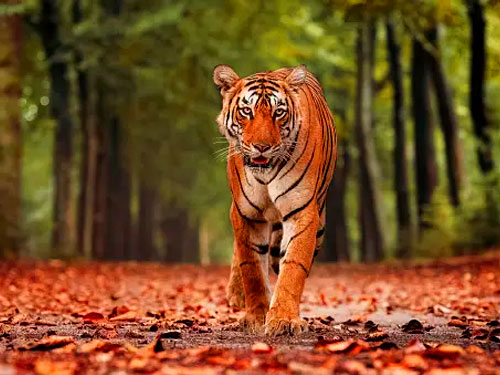
![]() 1 Night / 2 Days
1 Night / 2 Days
![]() Dhikala / Gairal / Bijrani Forest Rest House
Dhikala / Gairal / Bijrani Forest Rest House
![]() 2 Jeep Safaris
2 Jeep Safaris
![]() Experienced Drivers
Experienced Drivers
![]() Expert Guides
Expert Guides
![]() Best price guarantee
Best price guarantee
Jim Corbett National Park is a famous national park located in the Nainital district of the Indian state of Uttarakhand. Established in 1936 as Hailey National Park, it was later renamed in 1957 after the famous hunter-turned-conservationist Jim Corbett, who played a key role in its establishment.
The park spans over an area of 520 square kilometers and is known for its rich diversity of flora and fauna. It is home to more than 600 species of birds, including the rare and endangered Bengal florican, as well as a variety of animals such as the Bengal tiger, Indian elephant, and Himalayan black bear. The park also has a significant population of crocodiles and various species of snakes.
In addition to wildlife, Jim Corbett National Park is also known for its scenic beauty, with picturesque landscapes consisting of dense forests, hills, rivers, and waterfalls. The park offers various activities for visitors, including jungle safaris, elephant rides, bird watching, and trekking.
Jim Corbett National Park is a popular tourist destination in India and attracts a large number of visitors every year. It is also an important conservation area, dedicated to the protection and preservation of the unique flora and fauna found in the region.
Corbett Tiger Reserve, located in the Indian state of Uttarakhand, is one of the oldest and most prestigious national parks in India. Here is a brief history of Corbett Tiger Reserve:
Establishment: Corbett Tiger Reserve was established in 1936 as Hailey National Park, named after Sir Malcolm Hailey, the then Governor of the United Provinces. It was the first national park in mainland Asia and aimed at protecting the Bengal tiger, which was facing a severe decline in population.
Renaming: In 1952, the park was renamed Ramganga National Park after the Ramganga River that flows through the area. Later, in 1957, it was renamed yet again after Jim Corbett, a renowned British hunter, conservationist, and author who played a crucial role in the establishment of the park. Jim Corbett's efforts in wildlife conservation and his role in establishing the reserve are commemorated through this renaming.
Flora and Fauna: Corbett Tiger Reserve is known for its rich biodiversity. Apart from Bengal tigers, the park is home to a variety of flora and fauna, including Asian elephants, leopards, various species of deer, reptiles, and numerous bird species. The park's diverse ecosystem includes riverine belts, grasslands, and dense forests.
Project Tiger: Corbett Tiger Reserve was one of the first areas in India to come under the Project Tiger initiative, launched in 1973 with the aim of conserving the dwindling population of tigers. The park has since played a significant role in the conservation of this iconic species.
Conservation Challenges: Like many other wildlife reserves, Corbett faces challenges such as human-wildlife conflict, poaching, and habitat loss. Conservation efforts are ongoing to address these issues and ensure the long-term survival of the park's ecosystems.
Tourism and Education: Corbett Tiger Reserve attracts a large number of tourists and wildlife enthusiasts every year. It also serves as an educational center, raising awareness about wildlife conservation and the importance of preserving natural habitats.
Corbett Tiger Reserve continues to be a symbol of India's commitment to wildlife conservation, and efforts are ongoing to protect its unique ecosystems and the species that call it home.

![]() 1 Night / 2 Days
1 Night / 2 Days
![]() Dhikala / Gairal / Bijrani Forest Rest House
Dhikala / Gairal / Bijrani Forest Rest House
![]() 2 Jeep Safaris
2 Jeep Safaris
![]() Experienced Drivers
Experienced Drivers
![]() Expert Guides
Expert Guides
![]() Best price guarantee
Best price guarantee
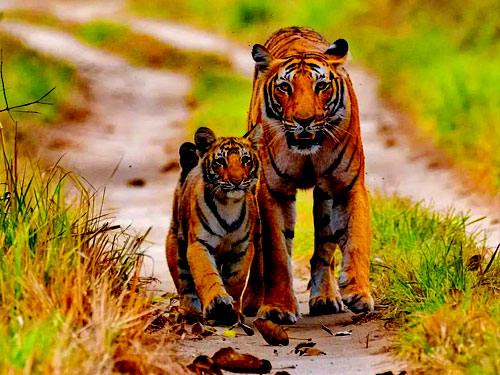
![]() 2 Night / 3 Days
2 Night / 3 Days
![]() Dhikala / Gairal / Bijrani Forest Rest House
Dhikala / Gairal / Bijrani Forest Rest House
![]() Upto 4 Jeep Safaris
Upto 4 Jeep Safaris
![]() Experienced Drivers
Experienced Drivers
![]() Expert Guides
Expert Guides
![]() Best price guarantee
Best price guarantee
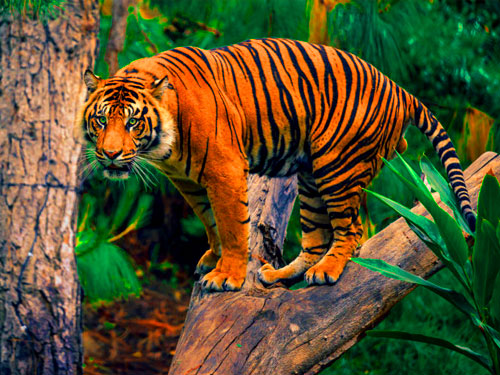
![]() 3 Night / 4 Days
3 Night / 4 Days
![]() Dhikala / Gairal / Bijrani Forest Rest House
Dhikala / Gairal / Bijrani Forest Rest House
![]() Upto 6 Jeep Safaris
Upto 6 Jeep Safaris
![]() Experienced Drivers
Experienced Drivers
![]() Expert Guides
Expert Guides
![]() Best price guarantee
Best price guarantee
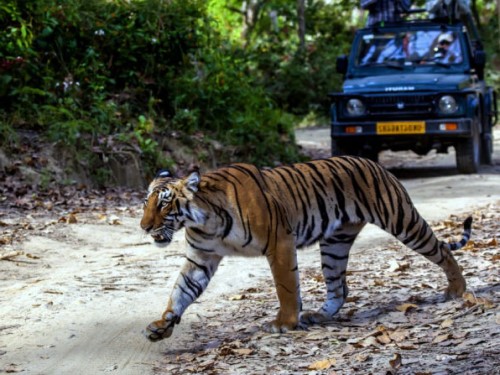
Corbett Jeep Safari refers to the popular wildlife safari conducted in the Jim Corbett National Park, which is located in the state of Uttarakhand, India. The park is one of the oldest national parks in India and is known for its rich biodiversity, including a variety of flora and fauna. The jeep safari is a thrilling way for visitors to explore the park and observe its wildlife in their natural habitat....
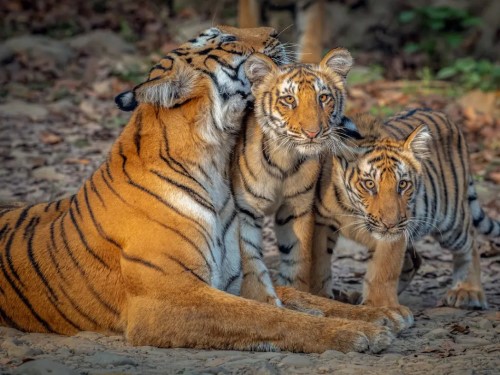
Dhikala is a popular tourist destination located in the Jim Corbett National Park in Uttarakhand, India. The Canter safari in Dhikala is one of the ways tourists can explore the rich biodiversity of the national park. Dhikala is situated in the core area of Jim Corbett National Park, and the canter safari provides visitors with an opportunity to spot various wildlife species in their natural habitat...
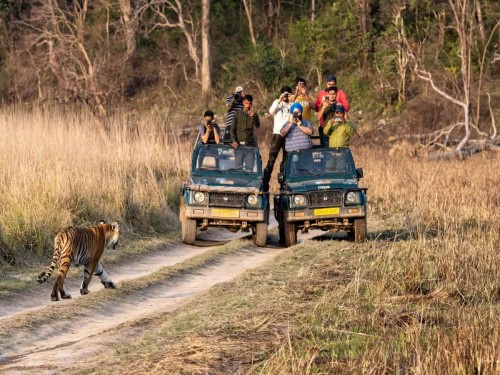
Sitabani Eco-tourism Zone is a fantastic destination located in the Pawalgarh Conservation Reserve. We prioritize sustainable practices that protect the environment and promote the well-being of local communities. One of the highlight activities at Sitabani is the thrilling jungle safari. You can explore the beautiful forest in an open jeep, getting up close and personal with a variety of wildlife...
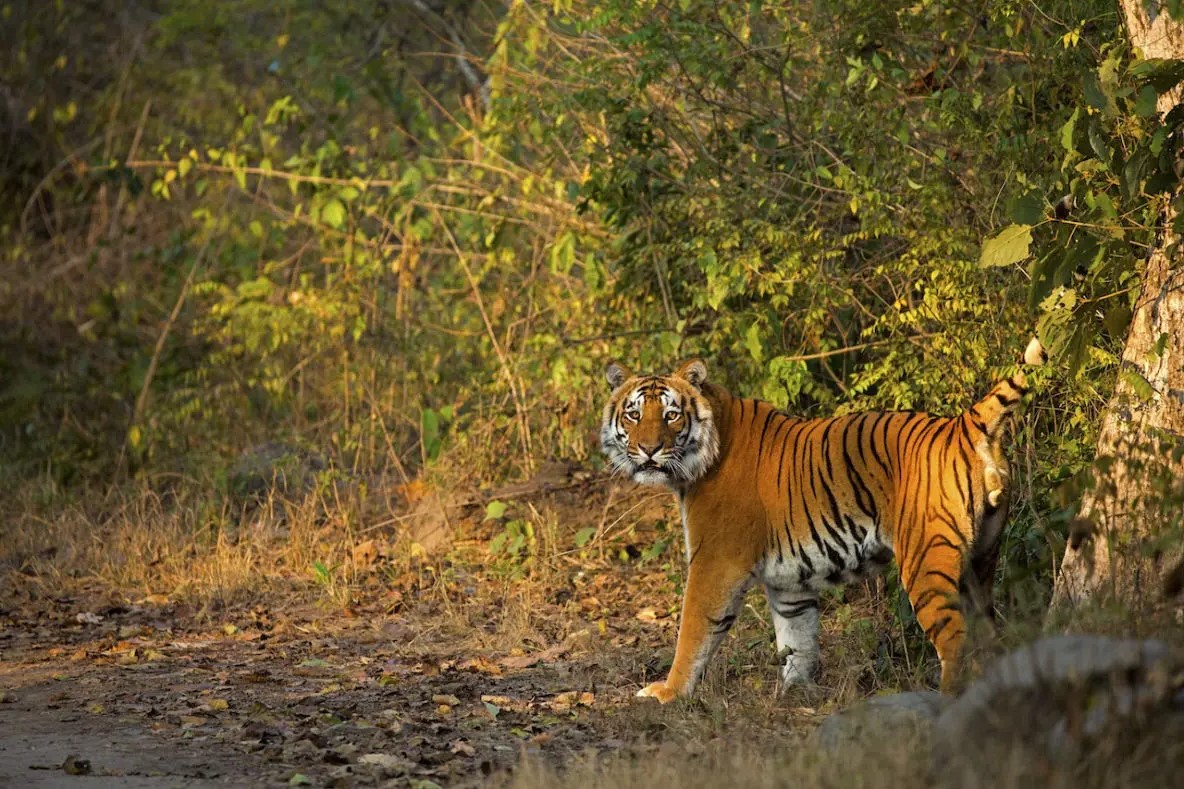
Bijrani, formerly a shooting block, was renowned during the British period for its excellent game-hunting opportunities. It is known for its drier terrain and diverse vegetation compared to Dhikala. Dhikala, on the other hand, is one of the most popular destinations in Corbett. It is situated at the edge of the vast Patli Dun Valley and offers a breathtaking panoramic view of the valley, with the Kanda Ridge in the background...
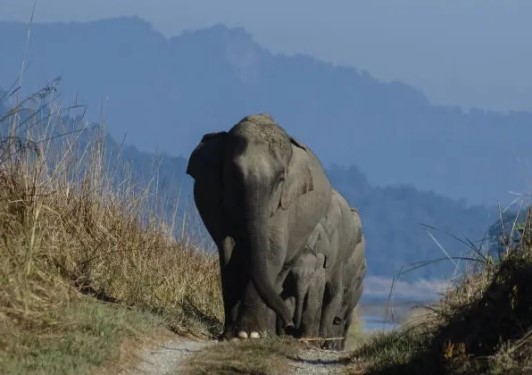
Jhirna Zone refers to one of the safari zones in the Jim Corbett National Park, which is located in the state of Uttarakhand in northern India. Jim Corbett National Park is one of the oldest national parks in India and is renowned for its diverse wildlife, including Bengal tigers, elephants, leopards, and various species of deer and birds. The park is divided into multiple zones to manage tourism and wildlife conservation effectively...
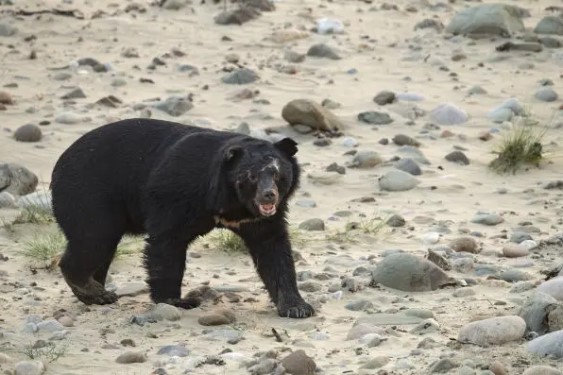
Bijrani Zone refers to one of the tourism zones in Jim Corbett National Park, which is located in the northern state of Uttarakhand, India. Jim Corbett National Park is one of the oldest national parks in India and is renowned for its rich biodiversity, including a variety of flora and fauna. Tourists interested in visiting the Bijrani Zone can typically do so through authorized safari tours organized by the forest department....